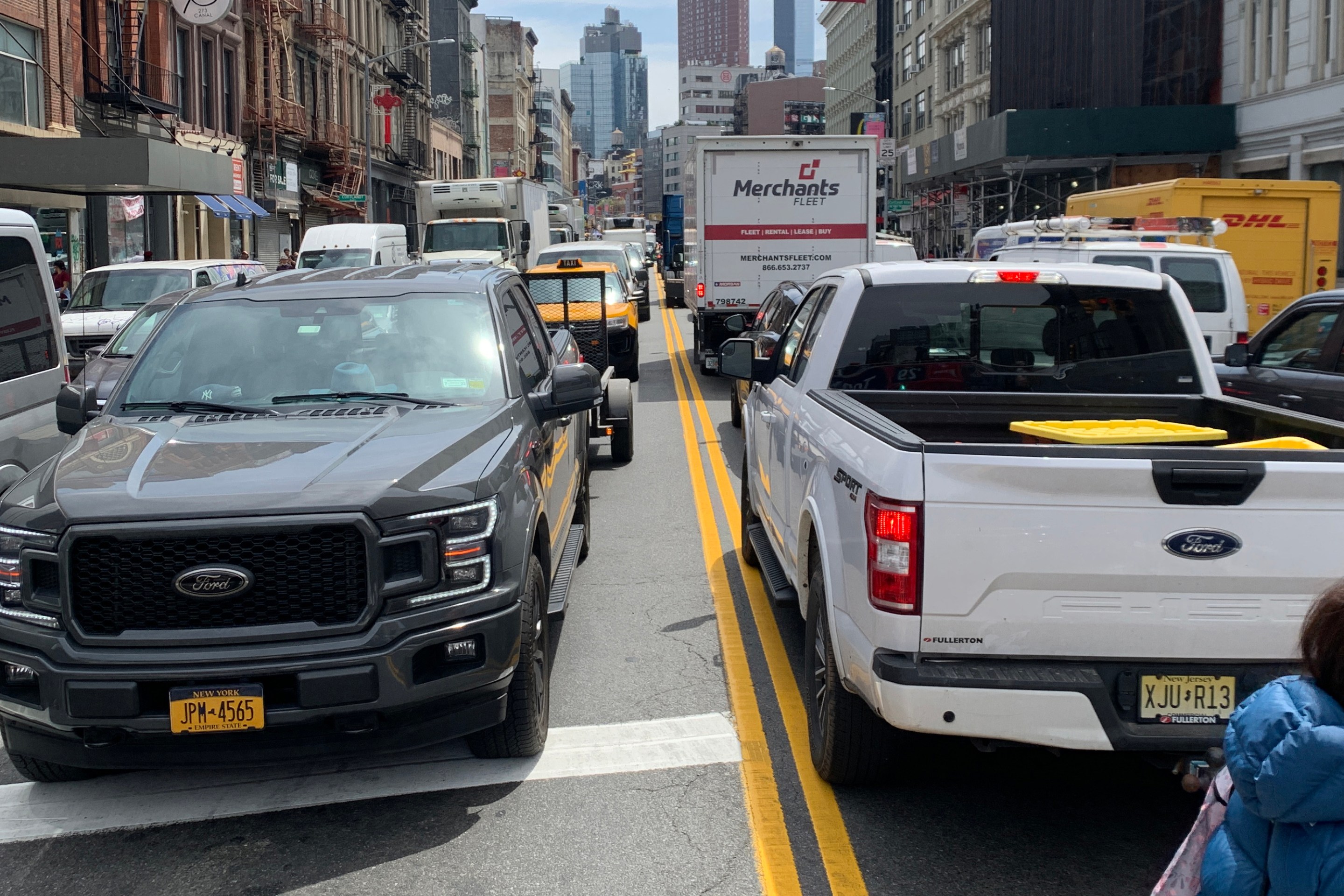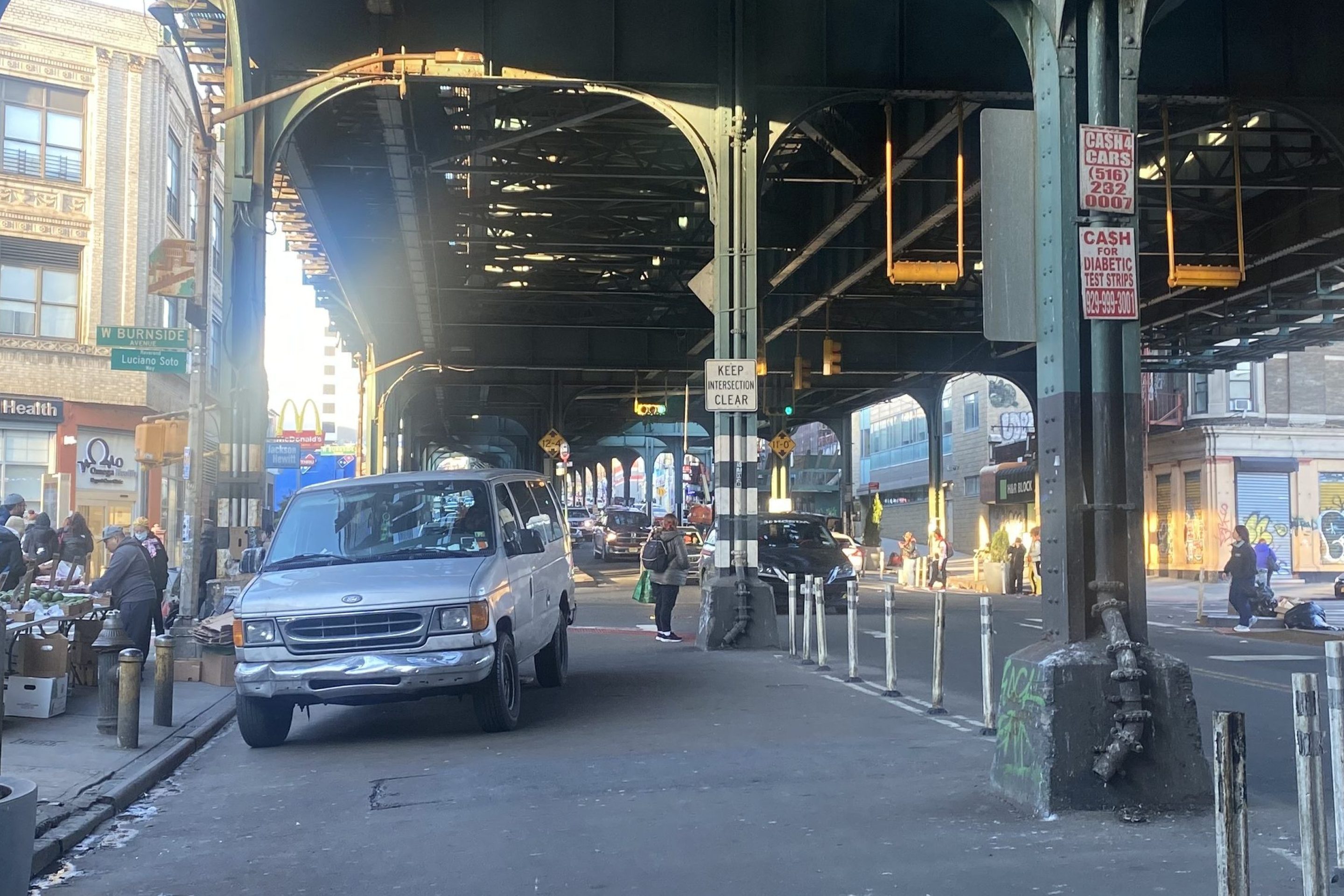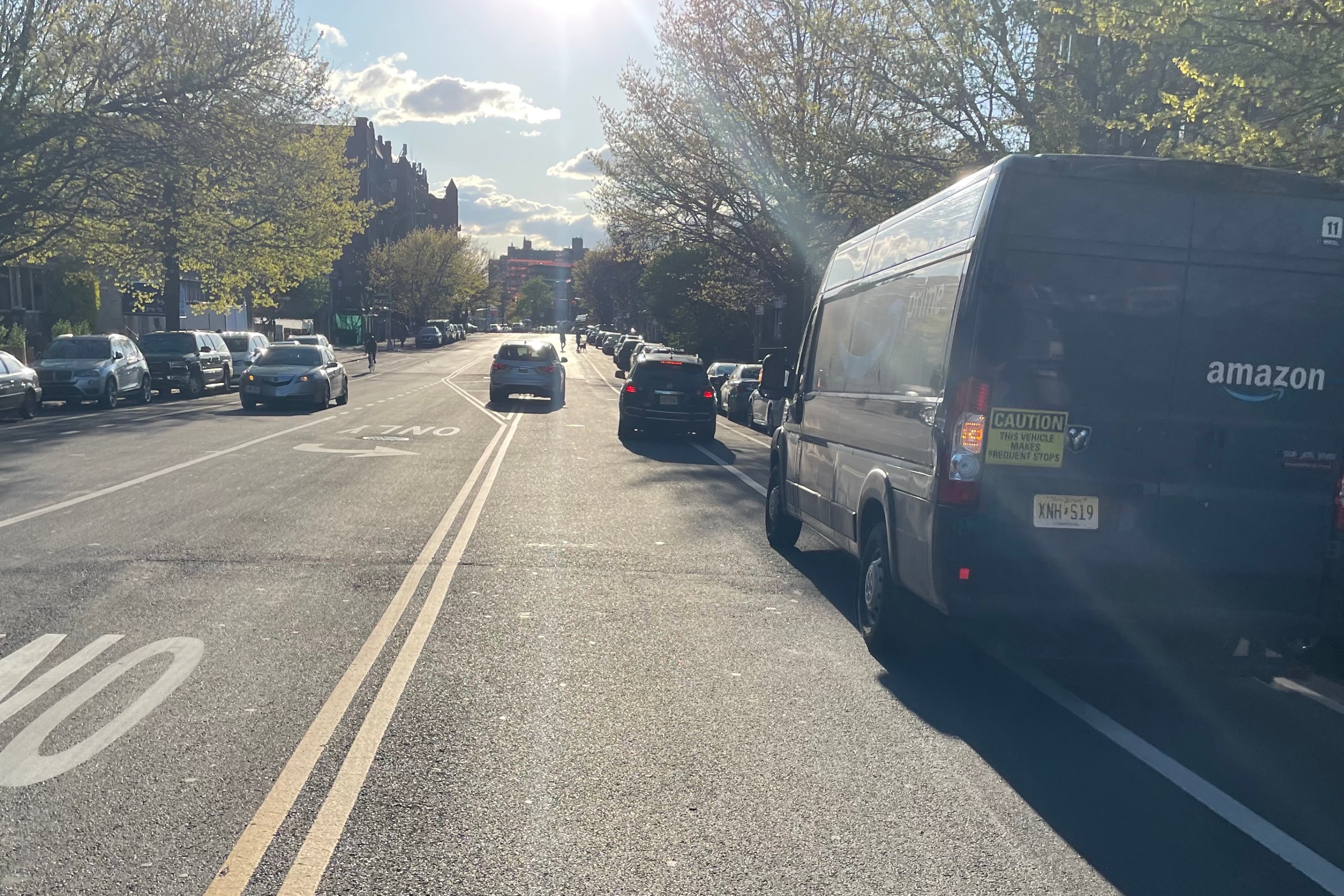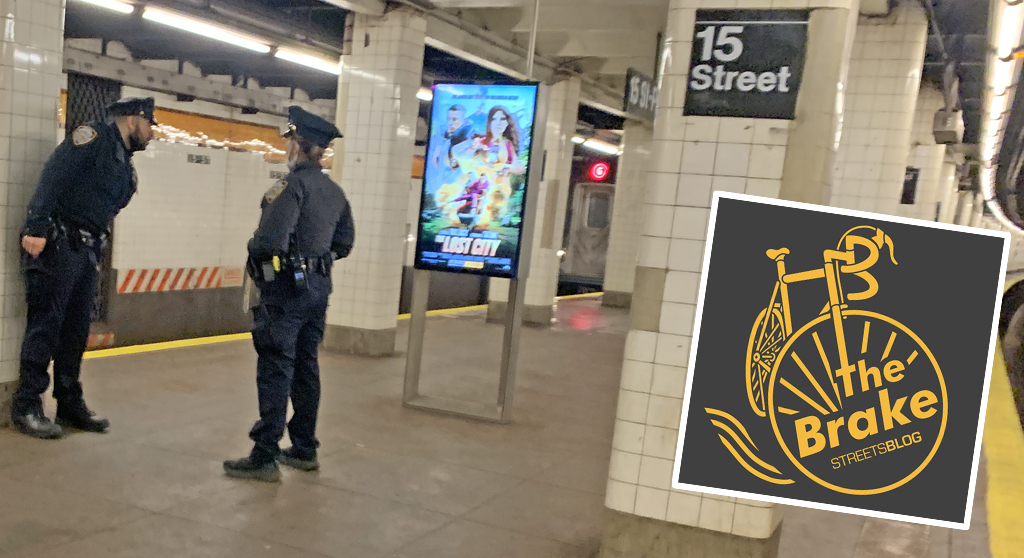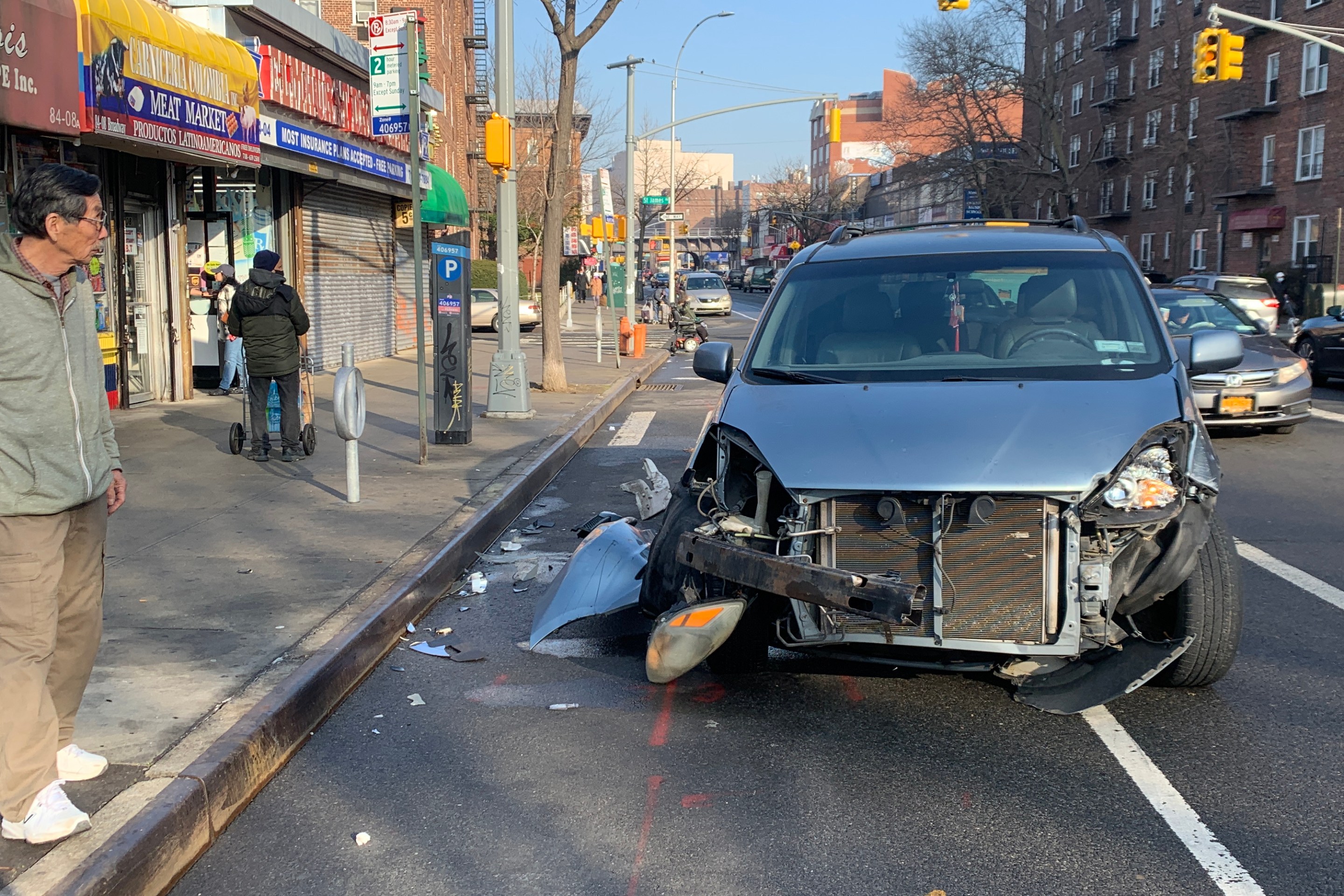
New Jersey traffic headed toward Chelsea Tuesday evening
Constituents of Lower Manhattan Assembly Member Deborah Glick have a lot to gain from congestion pricing, but they should not assume their representative will vote for the plan once (or if) it reaches Albany.
Meeting with a group of advocates who traveled from the city yesterday, Glick reeled off a list of grievances, both with pricing and Mayor Michael Bloomberg, whom she described as an "out of touch billionaire."
Lawmakers who had issues with pricing as proposed last year were greeted with "arrogance and dismissiveness," according to Glick. "We asked a lot of questions," she said, "we got no answers." Even after innumerable public hearings and the months-long Traffic Congestion Mitigation Commission process, which she is in part responsible for, Glick says communication from the city is "only slightly better" now.
If the Bloomberg administration really wanted to raise money, Glick said, it would not offer so many tax breaks for developers. Instead, the mayor is more concerned with building luxury high rises for the wealthy, who she said will constitute the majority of new residents expected to settle in the city over the next two decades. Glick believes the original congestion pricing plan was more about Bloomberg's legacy than a workable program to reduce traffic and fund transit.
But enough about the mayor. Here's what Glick thinks of congestion pricing today:
- The toll credit for New Jersey commuters offers them "no disincentive" to drive.
- The effort to implement pricing without an Environmental Impact Statement is part of a larger plan to undermine reviews for future development.
- The city could have taken 100,000 cars off the streets over the past year via placard reform, had it wished.
- New York could do without 1,000 yellow cabs. And all those double-parked limos.
- Congestion pricing is "lacking in thoughtfulness about real issues," like exemptions for doctor visits, and for health care employees who work from 4 p.m. to midnight, arriving at work too early to avoid the congestion charge and getting off too late to rely on train service.
- The proposed credit card based payment system discriminates against the poor, who will not be able to pay congestion fees as conveniently and who will be most vulnerable to "disgusting and outrageous" late charges.
Despite her misgivings, which don't seem to have changed much since last year, Glick still describes herself as "decidedly on the fence." And unlike most legislators, who -- judging from the chatter among advocates who spent Tuesday working the halls of power in Albany -- don't want to talk about pricing, Glick spoke at length and in detail.
"It's totally in my self-interest to get more money for mass transit," she said.

